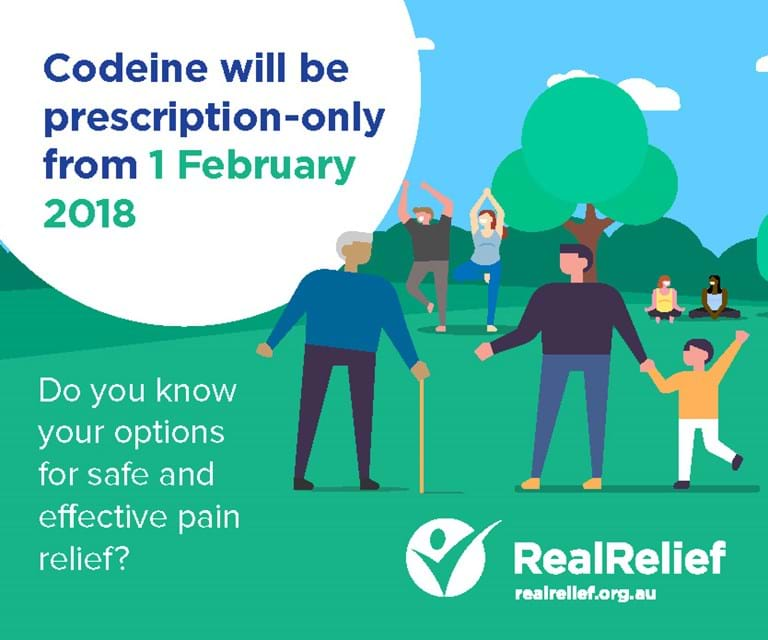Beyond Codeine: #realrelief
This week in Australia on 1 February 2018 we have seen the upscheduling of codeine-containing medicines to prescription-only – bringing us into line with 25 other countries. The important issue this change has highlighted is the urgent need for a national response to pain.
One in five Australians are living with pain and require education and support to access effective, safe and affordable ways to manage their pain. Consumers need to be informed not just about the new access arrangements for codeine and why they are necessary, but also about the alternative ways they can manage their pain.
The Real Relief campaign – led by Painaustralia and supported by partner organisations the Faculty of Pain Medicine (ANZCA), Royal Australasian College of Physicians, Rural Doctors Association of Australia, Society of Hospital Pharmacists of Australia, the Australian Pain Society, the Consumers Health Forum and ScriptWise – has made significant inroads on these fronts. Many other organisations have also supported the TGA decision.
Since 22 December last year, there have been daily #realrelief tweets from the Painaustralia account while posts on the Real Relief Facebook page have reached in excess of 60,000 people. There has also been paid advertising to drive people to the Real Relief website, where consumers can find out more about non-medicine approaches to pain management.
There has been ongoing media interest, with Painaustralia and and most health, medical and consumer organisations taking a clear and united stance on the issue giving consumers an uncomprising message.
Whereas previously many were unaware of the dangers of what is essentially a type of morphine, continuous #realrelief messaging has led many to reassess their options and rethink their position on their use of codeine, evidenced by the comments the campaign has received..
However, comments also highlight a general lack of knowledge about multidisciplinary pain management and indicate the need for improving affordable access to education, pain services and health professionals trained in pain management.
Almost 2,500 people have already pledged their support for Mary-Lynne Cochrane’s petition to the Australian Government asking for affordable and accessible alternative treatments for chronic pain, and many more are simply just waiting for help.
In Painaustralia’s Pre-Budget Submission 2018-19 we have called for an update to the National Pain Strategy to ensure it reflects best pracitce as well as a national web-based consumer support network among other important priority initiatives.
Beyond the codeine awareness campaign is an enormous opportunity to bring real relief to millions of Australians. Let’s hope we see a commitment to a comprehensive national plan to tackle the epidemic of chronic pain in Australia.
